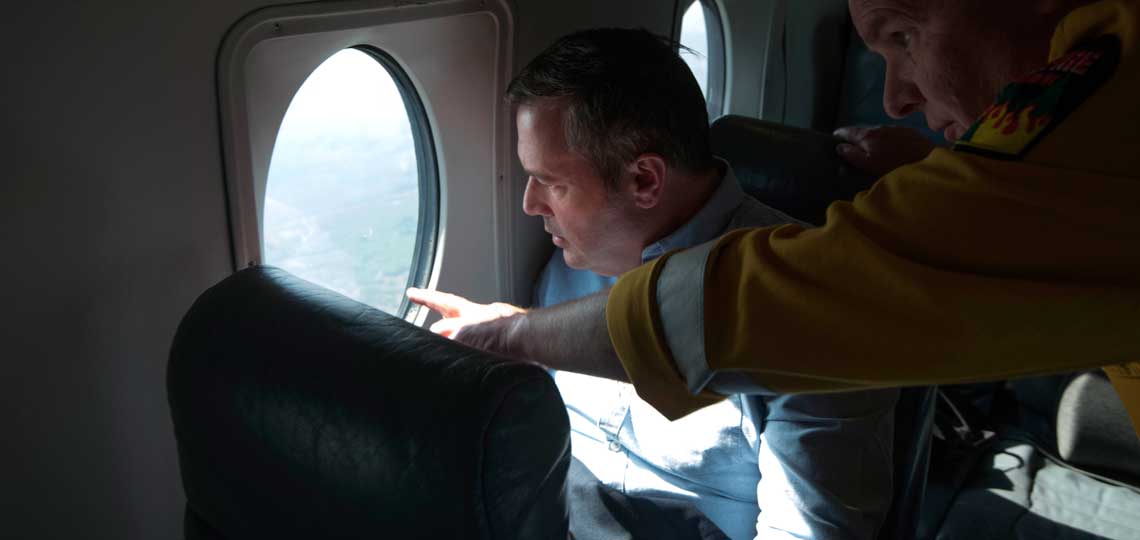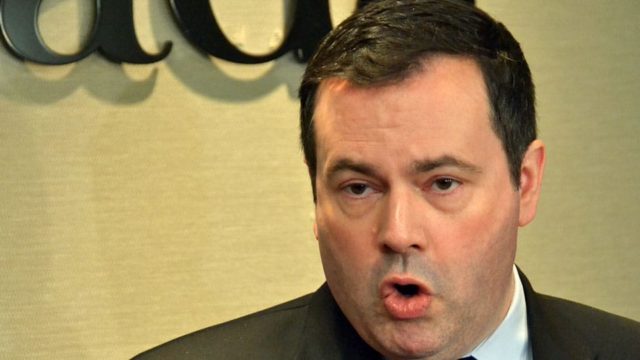Since the early 1990s, Ecojustice has won dozens of precedent-setting legal victories and shaped the laws that are the cornerstone of initiatives to protect people, places, species, and the climate from coast to coast to coast.
In every one of those cases, Ecojustice provides its legal services free of charge.
As Canada’s largest environmental law charity, all of our work — every lawsuit, every salary, every affidavit sworn — is only possible because there are people and organizations out there who believe in our vision and choose to invest in our mission.
Recently, however, politicians and online commentators have taken aim at where Ecojustice’s funding comes from and how we use it. The purpose is clear: Deflect attention from the need to address the climate crisis and its impact on Canadians by alleging conspiracies and laying blame anywhere they can.
Perhaps the most common conspiracy theory goes something like this: “Environmental organizations aren’t acting in Canadians’ best interests. They’re actually doing the bidding of rich, powerful people and foundations in the United States. These foreign actors want to bring down Canada’s economy, so they’ve poured millions of dollars into Canadian charities in order to land lock Canadian oil.”
This is not true.
Regardless of where donations come from and in what amount, Ecojustice’s mission — to use the power of the law to defend nature, combat climate change, and fight for a healthy environment for all Canadians — has never wavered.
We’re proud of the critical role we play in protecting the environment in Canada. And we have nothing to hide.
In the interest of transparency, here’s a closer look at where our funding comes from and how we use it:
Why are we talking about this now?
For years, Ecojustice decided it didn’t make sense to dignify false claims about foreign funding and environmental charities.
We recognize the rhetoric for what it is: a cynical attempt to divide Canadians for partisan purposes, to distract environmental organizations from the urgent fight against climate change, and to undermine our work with personal attacks.
Instead, we focused our energy on the pressing matters at hand, such as providing legal representation for Canadian environmental organizations concerned about the Northern Gateway and Energy East pipelines, and helping communities fight coal ports that put their health and the climate at risk.
But things changed when Alberta Premier Jason Kenney announced a PR “war room” and a public inquiry into “anti-Alberta energy campaigns.” Suddenly, the fallacies around Canada’s environmental movement weren’t limited to the fringes of the internet. Elected leaders were repeating the accusations on the record and relying on them to inform public policy.
We refused to be intimidated. In November 2019, Ecojustice launched a judicial review of Kenney’s public inquiry.
Having poured $3.5M into this partisan stunt, the Alberta government released its final report in October 2021. It contained no new information, and confirmed what Ecojustice had said from the beginning: The inquiry was a witch hunt, aimed at silencing and targeting environmental organizations and distracting Canadians from the climate crisis on their doorstep.
We’ve always been open with supporters and the public. In the spirit of which, below are three facts on Ecojustice’s funding.
Fact #1: Ecojustice accepts funding from donors around the world.
Ecojustice accepts funding from donors outside of Canada, including supporters based in the United States.
However, claims that foreign funding is a significant part of our revenue are overblown. And, donors do not dictate the work we do.
The majority of Ecojustice’s funding (75 per cent), comes from individuals. This includes the more than 19,000 individual Canadians who share our vision of a thriving environment, safe climate, and healthy communities. The remaining funding comes from family foundations and organizations.
In our 2018-2019 fiscal year, about 15 per cent of the total donations foundations made to Ecojustice came from U.S. groups concerned about the environment. That same year, less than 1 per cent of Ecojustice’s total funding came from U.S. sources and was earmarked for tar sands work.
This is consistent with Ecojustice’s history of receiving funding from donors around the world and how we spend it. In the past three decades, Ecojustice has received $1.3 million in funding from U.S. funders for our work in the Alberta tar sands. That makes up about 1.6 per cent of all-time donations to Ecojustice.
It’s also important to remember that accepting funding from donors outside of Canada is legal, and that issues we work on, such as combatting the climate emergency, do not respect political borders.
Click here to download a chart that breaks down, year-by-year, Ecojustice’s total funding and how much of it comes from U.S. sources and is earmarked for tar sands work.
Fact #2: Ecojustice only accepts donations that meet a strict set of criteria.
Ecojustice will accept donations only if:
- The donation is given on the condition that the donor will not influence Ecojustice’s strategic choices.
- The donor is not, or not likely to become, an opposing party to Ecojustice litigation, with the exception that Ecojustice will accept universally-available government funding (e.g. the wage subsidy made available by the federal government to support employers through the COVID-19 pandemic).
- The donor is not engaged in activities that conflict with Ecojustice’s mission to use the law to defend the environment.
I’ll be blunt. The work Ecojustice does — litigating against governments and wealthy corporations to defend the environment, and advocating for better laws — is expensive and requires long-term commitments. And so long as they meet our strict criteria, Ecojustice invites and gratefully welcomes gifts from people and organizations who want to invest in our mission.
Fact #3 – We’re in Alberta for a reason: to provide legal support to the many organizations and individuals who want to meaningfully combat climate change, confront the toxic impacts of Canada’s tar sands, and pave the way for a just transition to clean energy.
Ecojustice didn’t decide to focus on the tar sands because a funder dangled money in front of us.
Beginning in the early 2000s, as Canadians began to understand the monumental environmental impacts of tar sands expansion, Ecojustice recognized that, if we were going to achieve our mission of protecting Canada’s environment, we needed to be in Alberta.
Ecojustice opened its Calgary office in 2008.
We knew then that if we were serious about combatting climate change, we couldn’t turn a blind eye on the tar sands. We also knew that, in order to be effective, we needed to have lawyers and experts on the ground, engaging with communities, First Nations, and clients, and taking action in provincial courts.
The tar sands are one of the most destructive energy projects on earth, their tailings ponds so huge in scale that they can be seen from space. Tar sands development is responsible for decimating critical species habitat and poisoning downstream communities with toxins.
And, the science is clear. If we’re going to avoid climate catastrophe, we cannot continue extracting oil on this scale.
Read more about how the tar sands impact Canadians.
Of course, for a long time, the tar sands were also a source of money. They still are. Families rely on this income. Communities formed around it.
We know transitioning off of fossil fuels and onto clean energy won’t be easy for these families, or for any of us who have grown used to living in a society and economy built around fossil fuels.
We’re not trying to downplay the situation. Addressing the climate crisis will require a massive, coordinated effort and many difficult decisions. Through this, it’s imperative that governments help Canadians make this transition in a just way. We can’t leave anybody behind.
This fight may be difficult, but it’s critical for all of our survival — from tar sands workers to young people taking to the streets to strike for climate action. That’s why Ecojustice will not be intimidated by attacks on our funding or our work, and why we remain committed to combatting climate change and keeping a presence on the ground in Alberta.
Still have questions? You can find more of Ecojustice’s financial information on our website, and you can access our Registered Charity Information Return Form T3010 online at any time.


